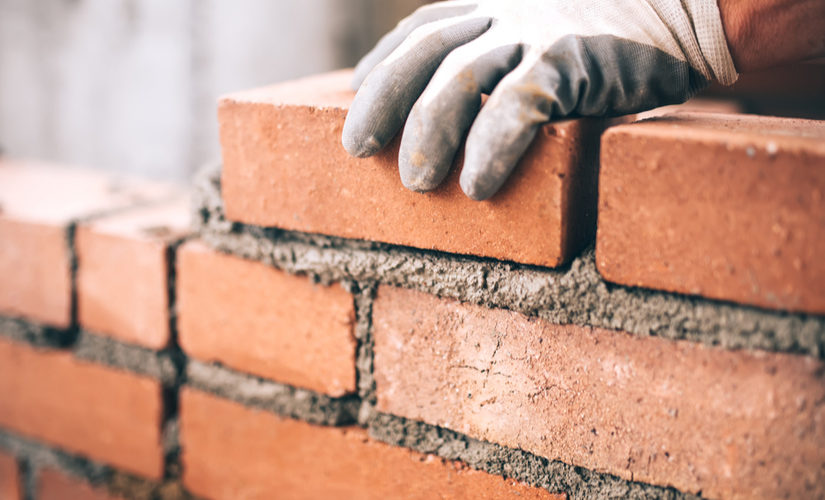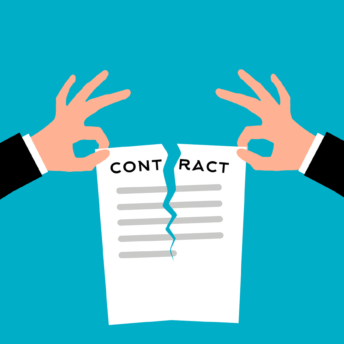The construction industry is regarded as one that is rife with conflict and disagreement. When a dispute arises between two parties, there are a number of ways in which the parties involved can find a resolution, including adjudication, arbitration, mediation, expert determination, and litigation.
In this article, legal advice building disputes, we take a look at each of these methods and consider the processes involved.
Free Initial Telephone Discussion
For a free initial discussion on how we can advise you if you are involved in a building dispute, get in touch with us today. We are experienced in dealing with all aspects of conflict resolution in construction. We will review your situation and discuss the options open to you in a clear and approachable manner. Early expert legal assistance can help ensure you avoid the stress of dealing with these issues on your own. Simply call us on 0345 901 0445 or click here to make a free enquiry and a member of the team will get back to you.
Adjudication
Adjudication tends to be a more favourable approach in construction projects due to its relative speed and the financial savings that can be made in comparison to other forms of resolution. Additionally, as Adjudicators tend to be persons with direct experience in construction matters, they bring some degree of authority to the proceedings. Adjudicators are often quantity surveyors, architects or solicitors with specific construction knowledge and experience.
Who can be an adjudicator?
The adjudicator can be anybody the parties agree it to be. He or she is normally a construction professional of some sort and is often a surveyor, architect or solicitor. The parties can agree a named individual at the start of either the contract or the adjudication proceedings, but usually the contract will just state an adjudicator nominating body such as RICS, Royal Institute for Chartered Surveyors, RIBA, Royal Institute of British Architects or the Chartered Institute of Arbitrators.
You should be aware that the adjudicator nominating bodies usually charge a fee of several hundred pounds for checking the availability and appropriateness of the adjudicator before nominating him.
What is the process of Adjudication?
Adjudication can be started by either of the parties involved. This is done by issuing a Notice of Adjudication that sets out the basic details of the dispute and the remedies requested by the referring party. The referring party then must arrange for the appointment of an Adjudicator. The person selected as the adjudicator can either be named in the contract, can be chosen by agreement or by independent nomination.
The responding party will usually provide their response within a few weeks of the referral and there will often be further submissions in the form of a reply. At this stage, there may be a meeting between the parties and the Adjudicator and there may also be a site visit either as part of that meeting or otherwise.
The idea behind adjudication is that it is ideally supposed to be a relatively quick process taking 28 days from the start to the point when a decision is made. The referring party may unilaterally extend this period by 14 days to 42 days and the parties may also agree extensions of any length.
The decision of an Adjudicator is considered to be partially binding, meaning that it is binding until the matter is finally decided by a court or, where applicable, by arbitration. The effect of this is that an Adjudicator’s decision can and will be enforced by the courts. It can often take around 8 weeks from issuing a claim form to getting a court order.
If either party wishes to challenge an Adjudicator’s decision, in the form of litigation or arbitration, they will be expected to comply with it first before they may challenge it. The principle of Adjudication, and the law generally, in relation to construction disputes is often summarised as “Pay now, argue later”.
It is important to note that Adjudication is a cost-neutral form of dispute resolution. This means that each party must pay their own legal costs and it is extremely rare for these to be payable by the other side. The Adjudicator’s costs are however usually apportioned on the normal basis, which is that the losing party will pay them although this doesn’t always happen.
How much does adjudication typically cost?
Adjudication is usually considerably cheaper than formal litigation. A lot depends upon the level of detail involved. A single contentious point will cost less than a full-blown final account adjudication. It will depend upon how much evidence has to be addressed and whether the involvement of experts or Counsel is required. A lot will also depend upon how much of the work the parties are willing to do themselves. A short, single-issue adjudication could cost a few thousand pounds whereas a far more complex case could cost tens of thousands.
What is the process after adjudication has taken place?
As soon as the adjudicator has made his decision, it is important that both sides abide by it. If the decision is not complied with, there is an abbreviated High Court procedure for enforcing an adjudicator’s decision. The London Technology and Construction Court has created a short enforcement application procedure. In the absence of very few technical grounds, the adjudicator’s decision will be enforced against the paying party. The loser will also have to pay the winning party’s legal costs of the enforcement proceedings. It is absolutely crucial that the rules of adjudication are followed otherwise the parties may end up with an unenforceable decision which would probably just result in duplicated costs as the parties repeat the process.
What is arbitration?
Arbitration is a formal type of ADR which involves a tribunal process and an independent arbiter who hears both sides of a dispute before coming to a decision.
The arbitration process is run as a tribunal, usually with either one or a panel of three arbiters. The arbiter decides on the procedural and evidential matters. Often disclosure of documents will be required and there can be cross examination of witnesses, but proceedings will normally be shorter and less formal than litigation. The arbiter makes a firm decision on a case, based on the evidence presented by the parties. It must be remembered that arbitration is voluntary, so both sides must agree to go to arbitration; they should also agree in advance that they will abide by the arbiter’s decision. If you don’t agree with the outcome, you wont be able to go to court at a later date.
Any decision made by the arbiter is legally binding in the same way as a judgment would be. Furthermore, under international conventions any arbitration awards or judgments in foreign countries are enforceable in the UK and vice-versa. This applies to any country that has signed the international convention. UK law allows for the enforcement of both arbitration judgments in the UK and also foreign ones.
What is the role of the arbiter?
An arbiter is a nominated independent third party who should be experienced in handling the arbitration process. Their role is similar to that of a judge, in that they will listen to both sides and come to a decision. However they will also encourage collaborative communication, as opposed to an adversarial approach. Although no specific qualifications are necessary to act as an arbiter, some legal experience is useful, as is industry knowledge if the dispute involves technical matters.
What is Mediation?
Mediation is a non-adversarial process used to resolve disputes and using a Mediator as a neutral third party. Mediation can be used at any time and is often used before resorting to more adversarial methods such as adjudication, arbitration or court proceedings.
The point of mediation is that it can be used to rebuild relationships as well as help to settle disputes and for it to be successful, there must be a commitment by all parties to make the process work. Unlike a judge, arbitrator, or adjudicator, the Mediator will not impose a decision on the parties but instead will help the parties achieve a mutually agreed settlement. Whilst a high percentage of cases settle through mediation if settlement is not achieved the Mediator may sometimes be asked by the parties to give a non-binding recommendation for settlement. All information, received by a Mediator while serving in that capacity will be confidential and privileged from subsequent production. The parties will maintain the confidentiality of the mediation and cannot rely upon or introduce as evidence anything said or done at the mediation (other than a final signed agreement settling an issue) in any court, arbitration or other proceedings, including adjudication.
With the exception of where the parties have agreed how the costs and expenses of the mediation are to be apportioned between them, the parties will share the costs and expenses of the mediation equally.
Expert Determination
Expert determination can be considered to be one of the most informal systems of dispute resolution. Expert determination is often used when there is a valuation dispute. If an expert is to be used to determine the dispute, the parties will agree this by contract and will agree that the expert determination will be binding. It is generally a quicker and less costly form of dispute resolution. However, the use of experts is much less tied to legal processes and therefore it is more difficult to challenge their decision. Additionally, an expert’s report cannot generally be enforced without further court or arbitration proceedings.
litigation
Litigation is one of the most common forms of resolving disputes within the construction industry. The Technology and Construction Court (TCC) is a specialist court which deals with technology and construction disputes and is governed by both the Civil Procedure Rules and the Technology and Construction Court Guide. A specialist TCC judge will deal with cases in the TCC.
Advantages of Litigation
- The claim process will be managed by a judge throughout.
- Complex issues can be dealt with.
- The parties will obtain a binding and enforceable decision.
Disadvantages of Litigation
- Only claims which are over the value of £250,000 can be dealt with at the TCC. Any claims below this sum will be dealt with at the County Court.
- It can be a slow process.
- It is likely to be the most expensive way of resolving a dispute.
- The proceedings will be in public and are therefore not confidential, except in certain very limited circumstances.
How we can help
We have a proven track record of helping clients deal with dispute resolution in construction. We will guide you through the process and ensure all checks are carried out swiftly and efficiently and we firmly believe that with the right solicitors by your side, the entire process will seem more manageable and far less daunting.
How to Contact Our Commercial Litigation Solicitors
It is important for you to be well informed about the issues and possible implications of alternative dispute resolution and litigation. However, expert legal support is crucial in terms of ensuring a positive outcome to your case.
To speak to our Commercial Litigation solicitors today, simply call us on 0345 901 0445, or click here to make a free enquiry. We are well known across the country and can assist wherever you are based. We also have offices based in Cheshire and London.





